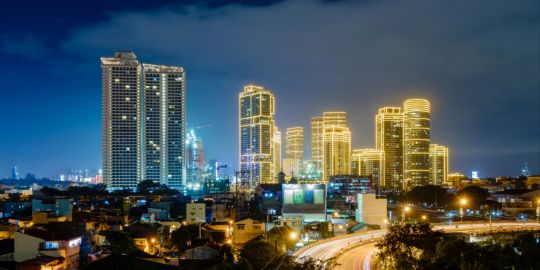Understanding work culture in Manila

When deciding to work in Manila as an expat, it is crucial to know and understand the proper work etiquette. What you are probably used to in your home country isn't necessarily acceptable in this city. Over-emphasis on staff birthday celebrations, a family-type environment in the workplace, referring to people as Mam/ Sir non-stop, and dressing less formally to beat the heat may surprise even the most seasoned expat. Here are some tips for adapting to your new work environment in Manila.
The professional dress code in Manila
Depending on your type of field, Filipinos mostly dress formally from Monday to Thursday and dress down on Fridays. A suit isn't usually necessary as Manila usually battles intense heat and humidity during the day. For men, a long-sleeved shirt and tie (or no tie) and dress pants would suffice. Women can dress similarly — a skirt or pants and a long-sleeved dress or shirt — or choose to wear a dress. It is also common for some companies to issue work uniforms like polo shirts for Fridays.
Professional Behaviour in Manila
Western expats commonly call their bosses by their first names. In the Philippines, doing that to your Filipino boss would get you in a lot of trouble. Hierarchy is important in the country, and using honorifics is a huge part of that culture.
Younger people, for example, are taught to use titles like kuya (elder brother) or ate (elder sister) to address older members of society, regardless of they're related. This culture gets carried over into the professional setting. Subordinates are expected to address their superiors by their professional titles or use terms like “ma'am”, “miss”, and “sir” as a sign of respect.
Expats who move to work in Manila would also notice that their work colleagues usually lightly approach stress and difficult tasks (with the Filipino term “bahala na”). This might seem unproductive to the expat, but when communicating with Filipinos, it is best to avoid speaking in a confrontational way. This type of directness is frowned upon in Philippine society as Filipinos are more used to the culture of saving face.
Filipinos don't like to show anger or raise their voices, as this is shameful and embarrassing in Filipino culture. It might also be difficult for Filipinos to say “no”, so they may say “yes” initially to avoid embarrassment when they ultimately intend to say no. Listening carefully to understand their meaning, as well as body gestures and expressions, goes a long way. This is because Manila and the Philippines — like most South-East Asian countries — have a high-context culture. In high-context cultures, communication is super nuanced.
Factors like body language, tone, facial expressions, and even the status of the person all play a part in the conversation. In this setting, there's no need to explicitly verbalize your message. Instead, people rely on non-verbal cues and context to communicate. If you're from a low-context culture like the US, where spelling things out is the norm, you might find this communication style confusing. You might miss your Filipino colleagues' non-verbal cues or come across as too assertive when giving direct feedback.
Philippine culture puts a lot of emphasis on respect and relationships. Therefore, you must build rapport, show respect to people, and engage yourself. If you come from a culture that values directness in conversations, accept that the Philippine culture appreciates small talk instead.
Socializing in the workplace
Filipinos are hardworking and can easily adapt to any type of environment. Working overtime a few days a week is also expected. On workdays, Filipinos usually lunch with colleagues. If you are part of a team, lunch-out meetings can also be a common work culture in Manila. After-work hang out can mean dinner out. After-work drinks, typically on a Friday night, are usually common. This can include drinking in a pub or even partying in a club.
When someone has a birthday in the office, people usually pitch in to buy that person a small gift or a cake. There is usually a small office celebration with food and drinks, either for lunch or snacks. Team building trips out of town and family-oriented company events are also common in Manila. This is usually a summer outing where the employer would have a separate budget to fund outdoor recreational activities that will help build camaraderie among their employees. The company sports festival is another popular activity which could include basketball, bowling, etc., where all employees, including the bosses, are expected to participate.
The Filipino openmindedness
Some expats might be surprised by the overly inquisitive questions that their Filipino colleagues might ask them. This might include questions about your family history, your marital status or the name of your partner. This doesn't mean that Filipinos are being aggressively nosy seeking private information, but rather, this shows emphasis on fostering warm relationships. This is a simple inquiry, generally showing friendliness. Filipinos are friendly, which means that real, long-lasting friendships can form at work.









